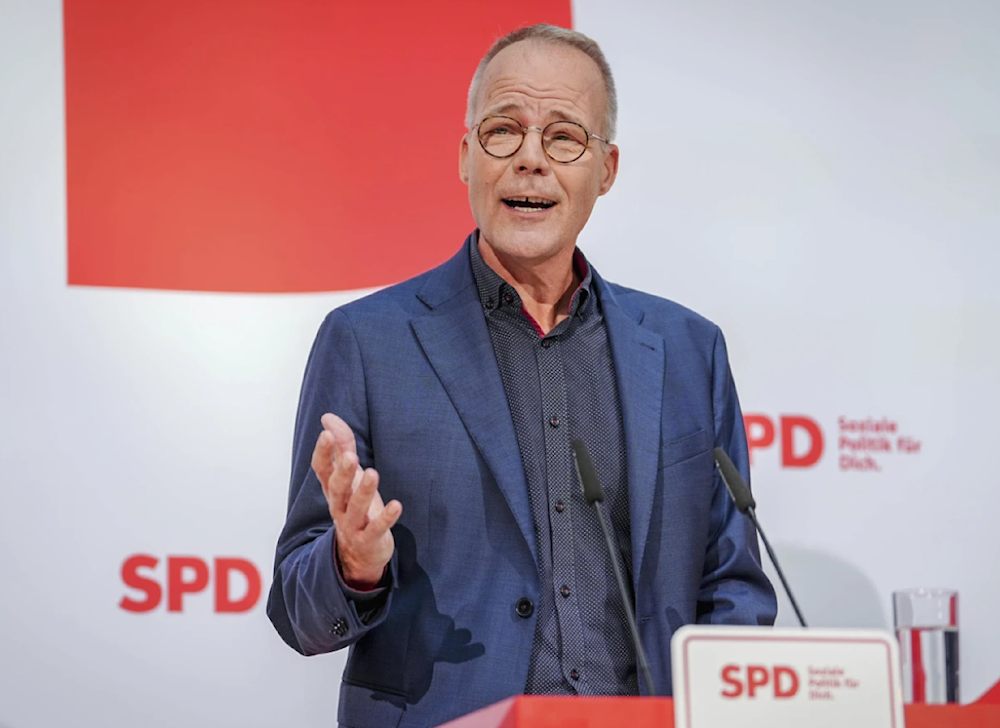Scholz's SPD demands apology from FDP over coalition collapse
Germany has entered a period of political uncertainty following the collapse of its fragile three-party ruling coalition on the same day as Donald Trump's US election win.
-

Matthias Miersch speaks as he is introduced as the new SPD General Secretary during a press conference at the party's headquarters in Berlin, Germany on October 8, 2024. (AP)
Matthias Miersch, secretary general of Chancellor Olaf Scholz's Social Democratic Party (SPD), has requested an apology from the Free Democratic Party (FDP) following media allegations that the party had been plotting to leave the government coalition since September.
According to sources cited by the German tabloid Zeit on Friday, the FDP has been preparing to depart from the government coalition since September and discussed the topic during a meeting at Truman-Villa in Potsdam.
Miersch told German television station NTV "I do not expect [leader of the Free Democratic Party] Christian Lindner to have the greatness to apologize to the people. But if someone in the FDP still has at least a drop of honor, then now is the time to do it with all humility."
The lawmaker described the occurrence as a political scam that harmed the entire country, saying that the move was not only foolish but also represented the decline of German political culture.
Germany has entered a period of political uncertainty following the collapse of its fragile three-party ruling coalition on the same day as Donald Trump's US election win. The coalition fell when Scholz sacked Finance Minister Lindner, the Free Democrats Party's leader.
He highlighted the latter's refusal to accept both an increase in expenditure to help Ukraine and an investment in Germany's future as reasons for this decision.
Scholz, who announced a confidence vote in January, with potential snap elections in March, will seek to reassure European allies at a summit in Budapest. He said late Wednesday that he plans to reach out to conservative opposition leader Friedrich Merz, who is currently leading in the polls, for support in passing key legislation on the economy and defense.
The collapse of his coalition, which robs him of a governing majority, comes at a critical moment for Germany's economy, projected to shrink for the second consecutive year.
Berenberg bank analyst Holger Schmieding wrote, "The early end of the coalition leaves Germany somewhat rudderless in what could be an exceptionally turbulent time right after Donald Trump won the U.S. election." However, Schmieding suggested that snap elections and fresh leadership in early 2025 could be beneficial, noting that "the constant bickering within the now-defunct three-party coalition had turned into a major obstacle to growth."

 3 Min Read
3 Min Read








